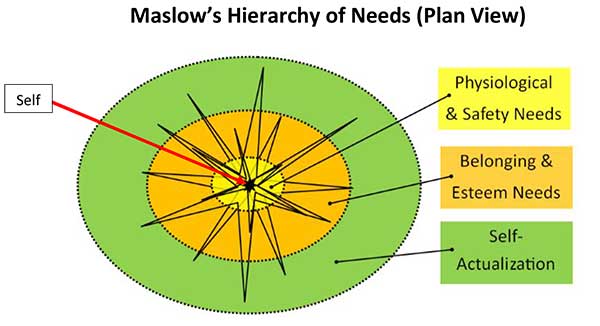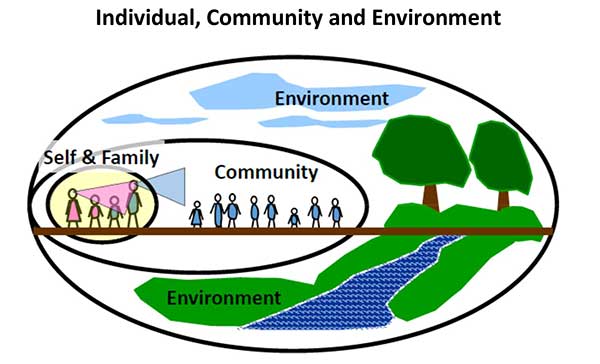 P.O. Box 941120 , Maitland , FL 32794-1120
P.O. Box 941120 , Maitland , FL 32794-1120 dmarks@cfl.rr.com
dmarks@cfl.rr.com  407.694.7040
407.694.7040
A community is a group of people living in the same place. A healthy and meaningful community is one where the residents work together to reach their common goals, taking on the characteristics of a large family. In many cases these communities are building an economy. One of man’s greatest achievements is that of creating communities and cities. Through living and working together the community can efficiently provide for its members.
What did mankind’s great thinkers have to say about the purpose of community?
Plato felt that the purpose of community was to address man’s interdependence. He saw it as a network of relationships in which by specialization and exchange all benefitted. He saw each citizen as a cell of a larger organism. Plato felt four virtues were needed by both society and its citizens to create a good city; wisdom, courage, justice and moderation.
To Aristotle everything has a function or goal, its “telos”. The telos of community was to help individuals become happy living a good life. Aristotle saw man as a political and social animal. He saw community as a partnership of its citizens to pursue a common good. He felt the “golden mean” should be applied to society and the individual. Which is the middle way between extremes. For example, courage is a mean between rashness and cowardice. To Aristotle friendship was also very important to obtaining happiness. He felt living near others was the key to developing friendships.
Abraham Maslow developed a hierarchy of needs theory that stated basic needs must be met before one desires higher level needs. Once one meets their physiological and safety needs, we look for love, belonging, respect, status, and finally self-actualization. These higher-level needs, excluding self-actualization, are all about becoming a valued member of a community. This theory indicates that members of a society will fall in line with its community’s values to be accepted. It seems that a community gets the results that it promotes and rewards.
• Physiological Needs – air, water, food, clothing, shelter
• Safety Needs - security
• Love and Belonging Needs – family, intimacy, friends, community
• Esteem Needs – respect, status
• Self-Actualization – reaching one’s potential, creativity

To Sigmund Freud the purpose of civilization was to avoid pain and obtain happiness. He said that there are two primal instincts that drive man; Eros and aggression. Eros is bonding with others, the desire to be loved. The purpose of aggression is to avoid pain and obtain happiness. Freud noted three sources of danger for man; his body (sickness, death), other humans, and forces from the external world. In his model of the psyche he developed his concept of id, super-ego and ego. The id is the impulsive self-centered child-like mind that demands immediate fulfillment of basic needs; hunger, thirst, pleasure, and the avoidance of pain. The super-ego is the conscience, the internalization of norms and values of the social group (community). The ego is the balance between self-gratification (id) and society’s demands (super-ego). If an individual is disenfranchised from its community’s, its norms and values will not take hold, leaving the individual in a more primal self-centered state.
In Joseph Campbell work, “The Power of Myth” with Bill Moyers, he stated that there are three functions of religion and mythology; maturation of the individual, integration of the individual with others (community), and integration of the individual into the environment (nature, cosmos). He stated that man and women represent different characteristics. The male represents order, society and aggression. The female represents nature, nurturing, givers of life, and compassion. A healthy community needs a balance of these male and female qualities to be happy and successful.

In Peter Kreeft’s book, “What Would Socrates Do?”, he looked at how we become good. He notes that philosophers have identified four ways people develop good values:
• By nature - innate
• By teaching - religion, education
• By practice - habits, social interaction (community)
• By force - government – laws
If we don’t have healthy religious and educational institutions, and are not providing good social interactions within our community, we are left with nature and force. Freud says nature doesn’t get us there; we start out as self-centered ids. So, we are left with force, a police state, a very expensive and restrictive structure that none of us want to live under. So, we need to focus on teaching and practice to help us develop good habits, and good communities.
Based on the above, it seems clear, to develop a healthy sustainable community we must create a structure that balances the needs and desires of the individual, with those of the community, and the environment. To create this healthy community, it must promote virtues such as Plato’s; wisdom, courage, justice and moderation. To promote these values families, along with: religious, educational, and governmental institutions, should to be promoted within the community. Our telos (purpose) should be to create a community that promotes individual happiness, and pursues the common good, in a sustainable way with our environment.
Read Chapter 14: Historic Communities Developed with Biological Principles